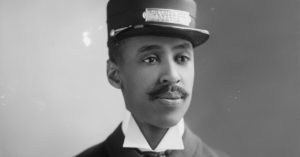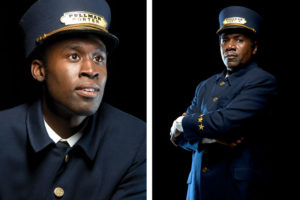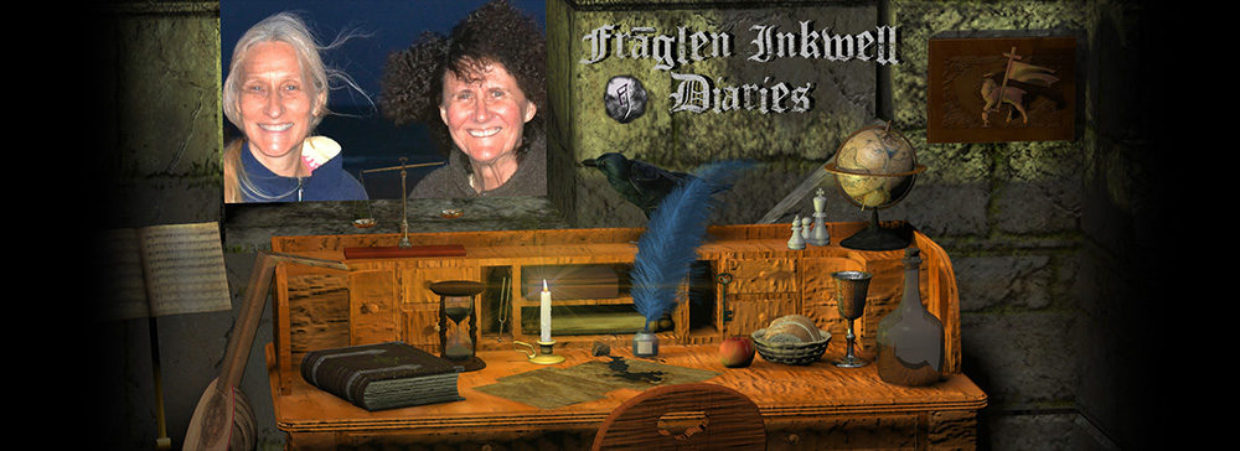
You’ve spent your day on a moving train, working nonstop for 14 hours.
You’ve carried suitcases, run errands, made beds, shined shoes, and
politely greeted countless passengers, even the rude ones. If you’re
lucky, you’ll get four hours of sleep tonight. You are a Pullman porter.

In the 1920s, job opportunities for African Americans were limited. At a
time when most worked as sharecroppers or housekeepers, the job of a Pullman
porter was highly respected in the black community. Porters had steady work
and got to travel around the country. But their friendly smiles and neatly
pressed uniforms masked the hardships of the job. Porters clocked 400 hours
a month, earned low wages, and could be fired for speaking up about their
difficult working conditions.
Pullman Porters Chicago 1920’s
Chicago Museum
Facing Freedom In America

What, then, shall we say in response to this? If God is for us, who can be against us?
He who did not spare his own Son, but gave him up for us all- how will he not also, along
with him, graciously give us all things? Who will bring any charge against those whom God
has chosen? It is God who justifies. Who is he that condemns? Christ Jesus, who died –
more than that, who was raised to life – is at the right hand of God and is also interceding
for us. Who shall separate us from the love of Christ? Shall trouble or hardship or persecution
or famine or nakedness or danger or sword? As it is written: “For your sake we face death all
day long; we are considered as sheep to be slaughtered.”
No, in all these things we are more than conquerors through him who loved us.
For I am convinced that neither death nor life, neither angels nor demons,
neither the present nor the future, nor any powers, neither height nor depth,
nor anything else in all creation, will be able to separate
us from the love of God that is in Christ Jesus our Lord.
Romans 8: 31-39
